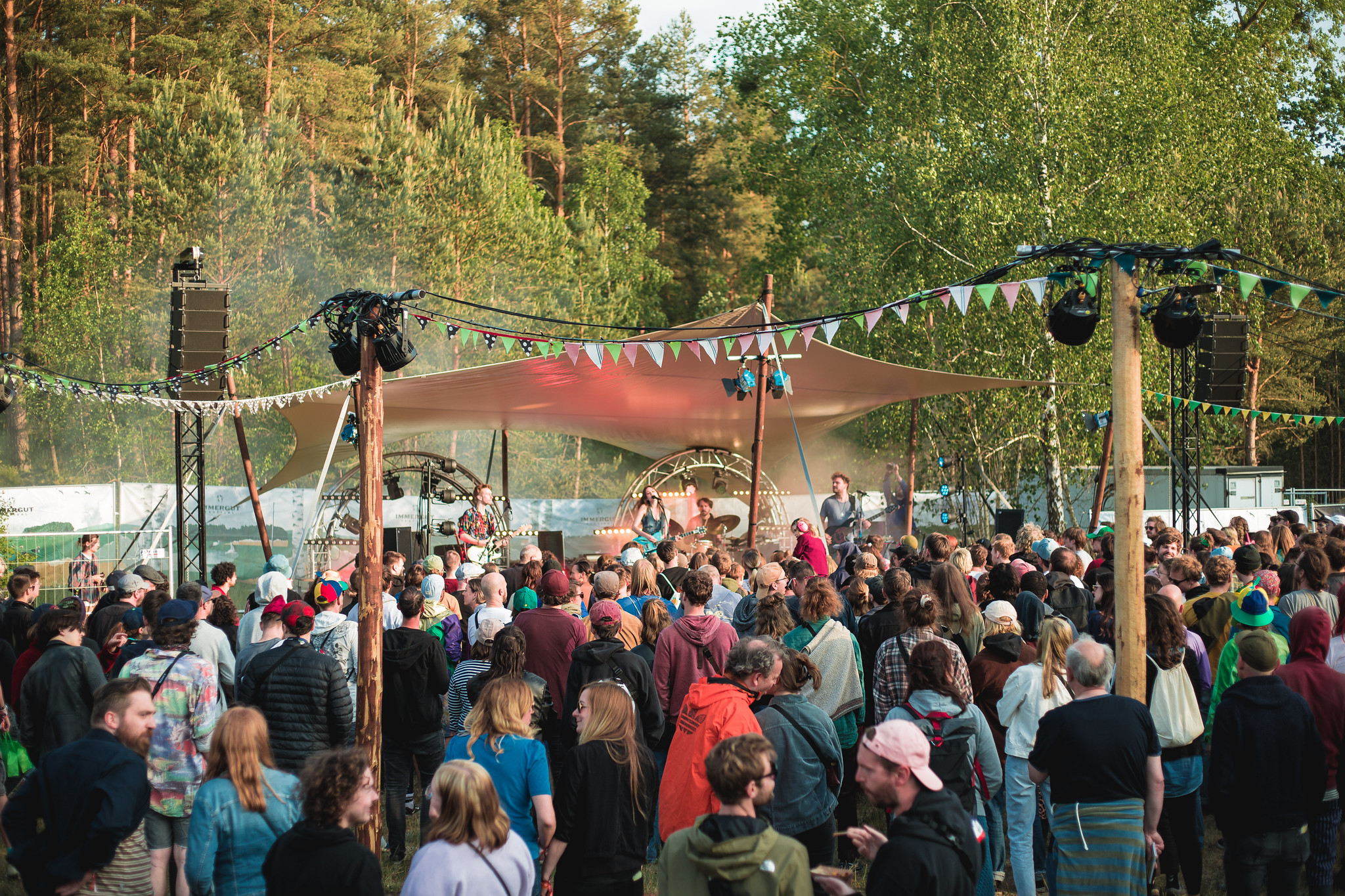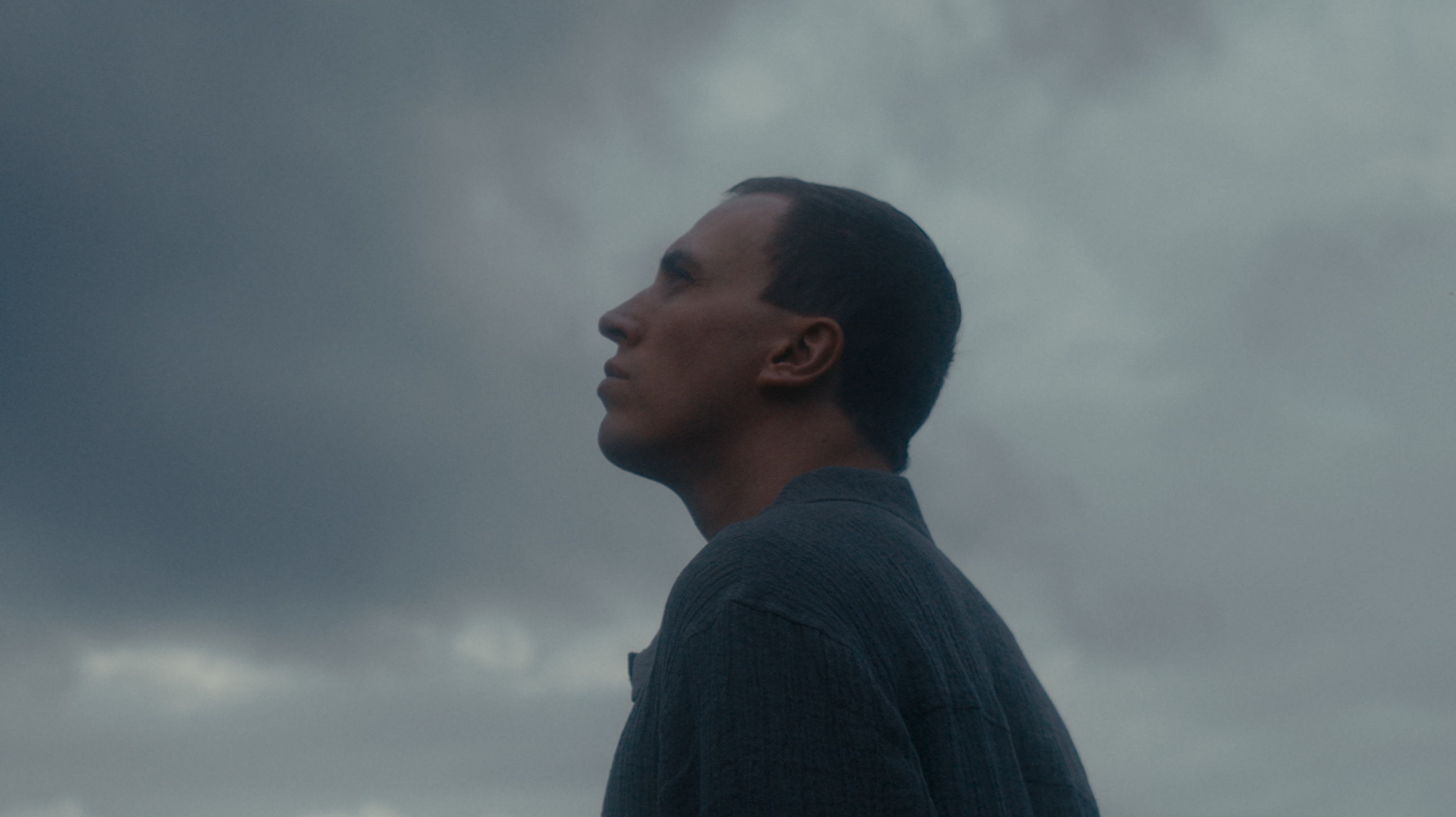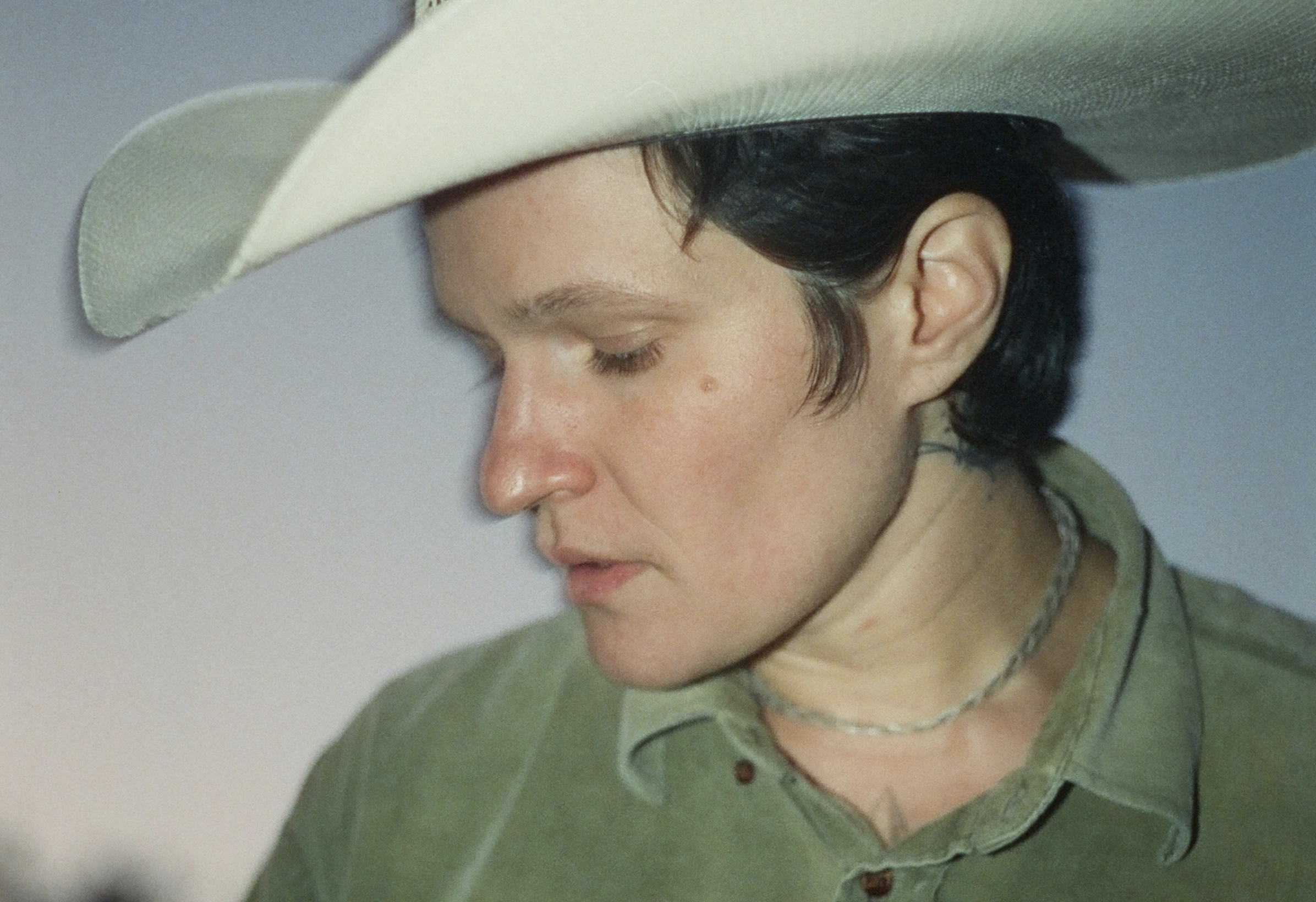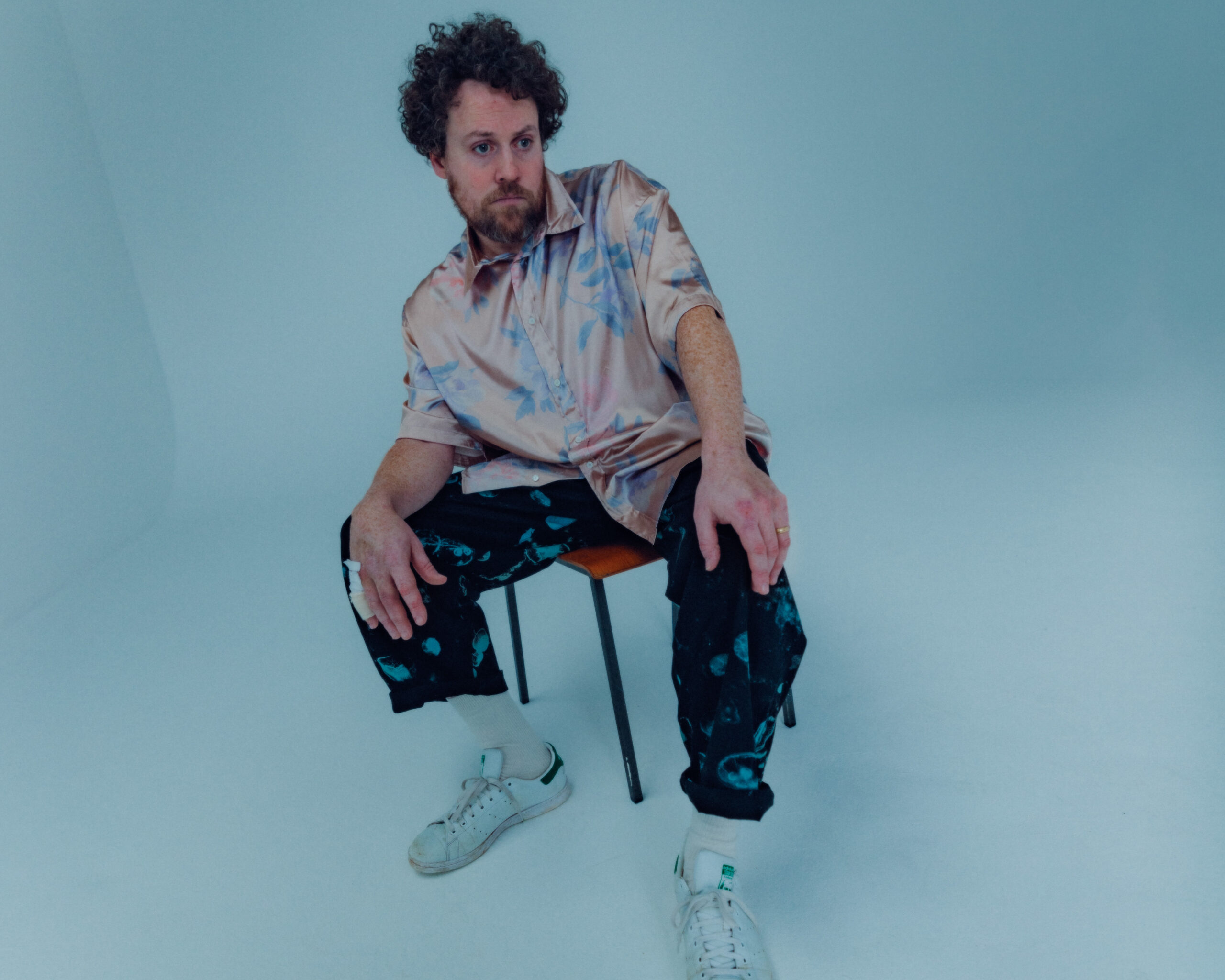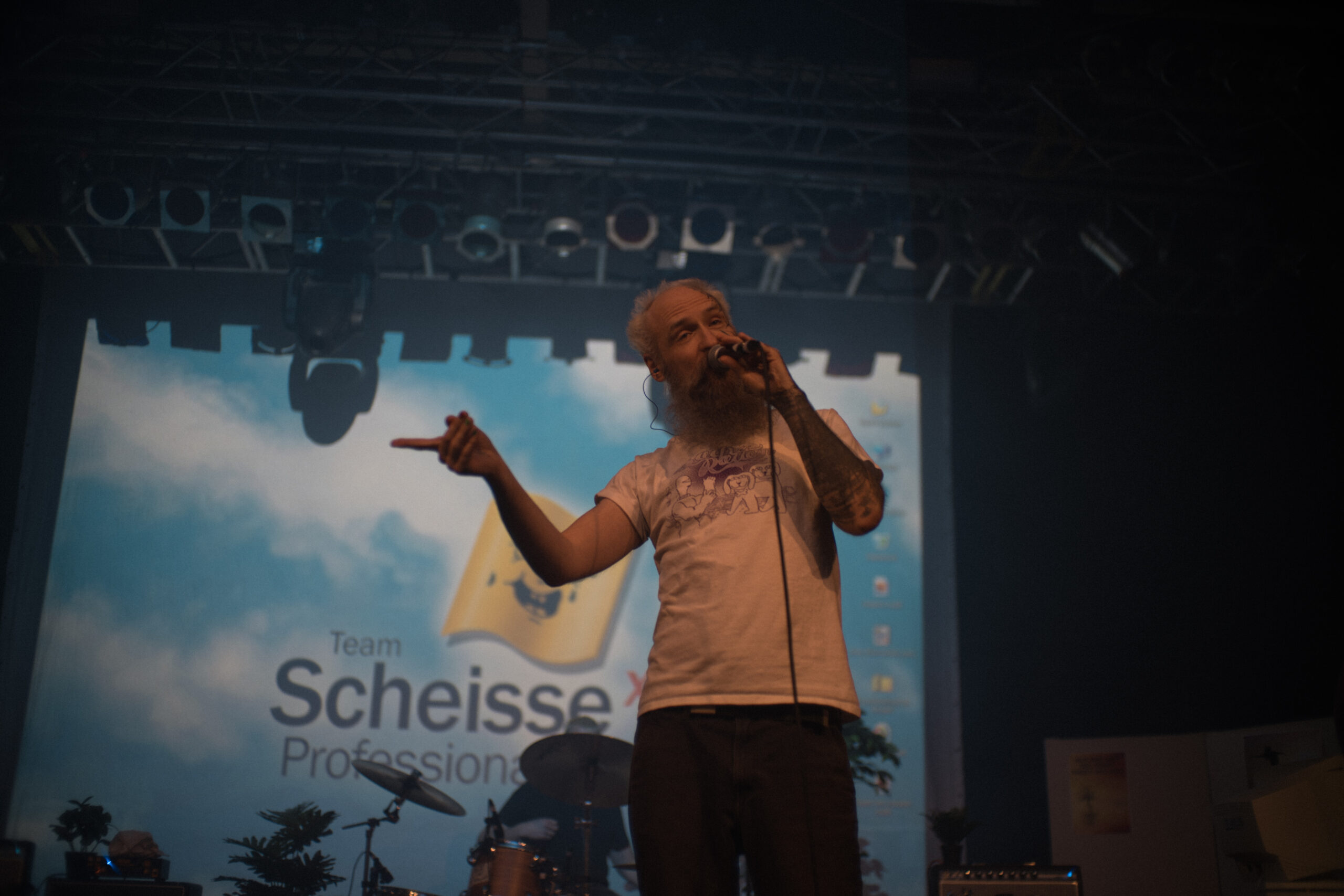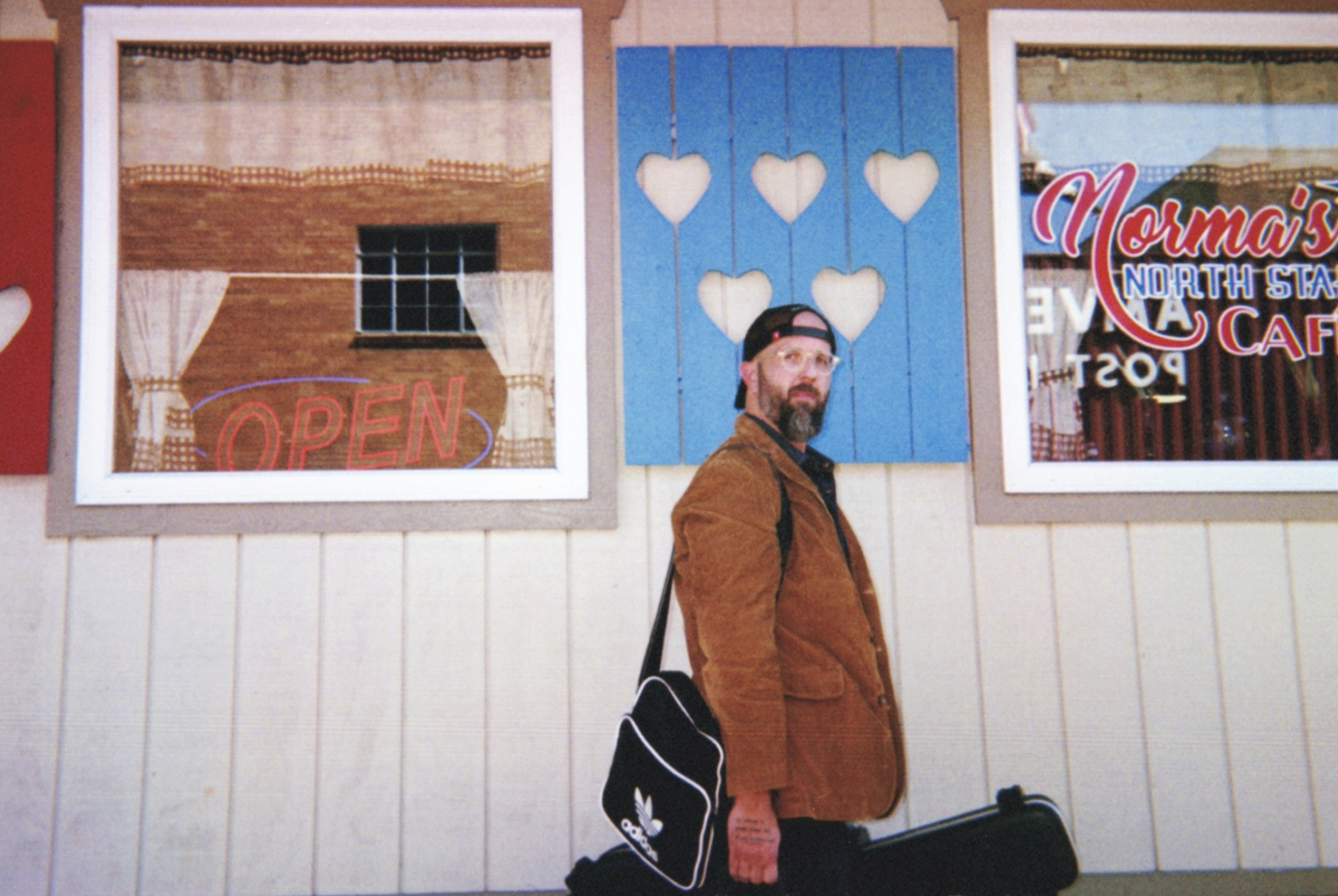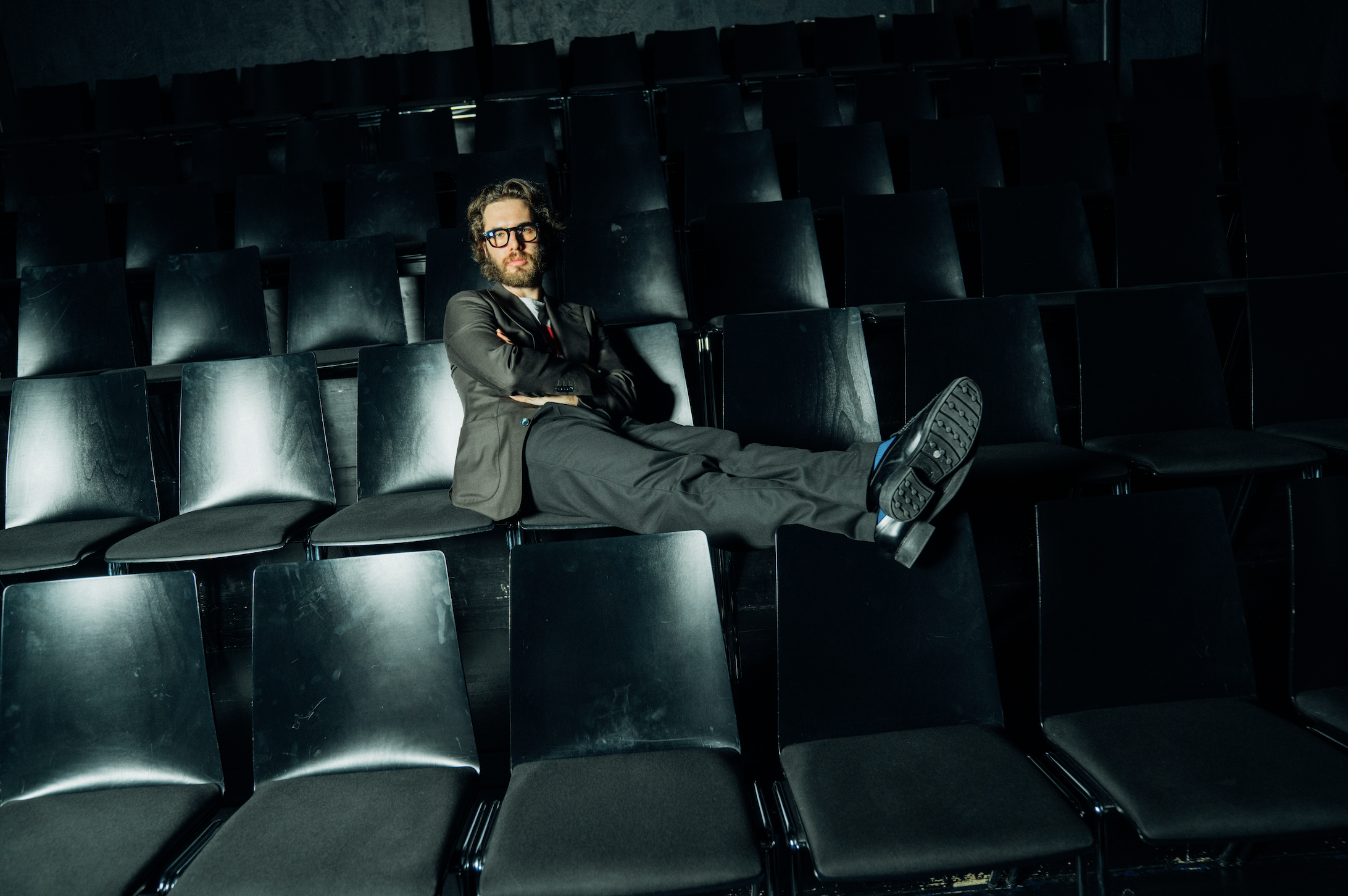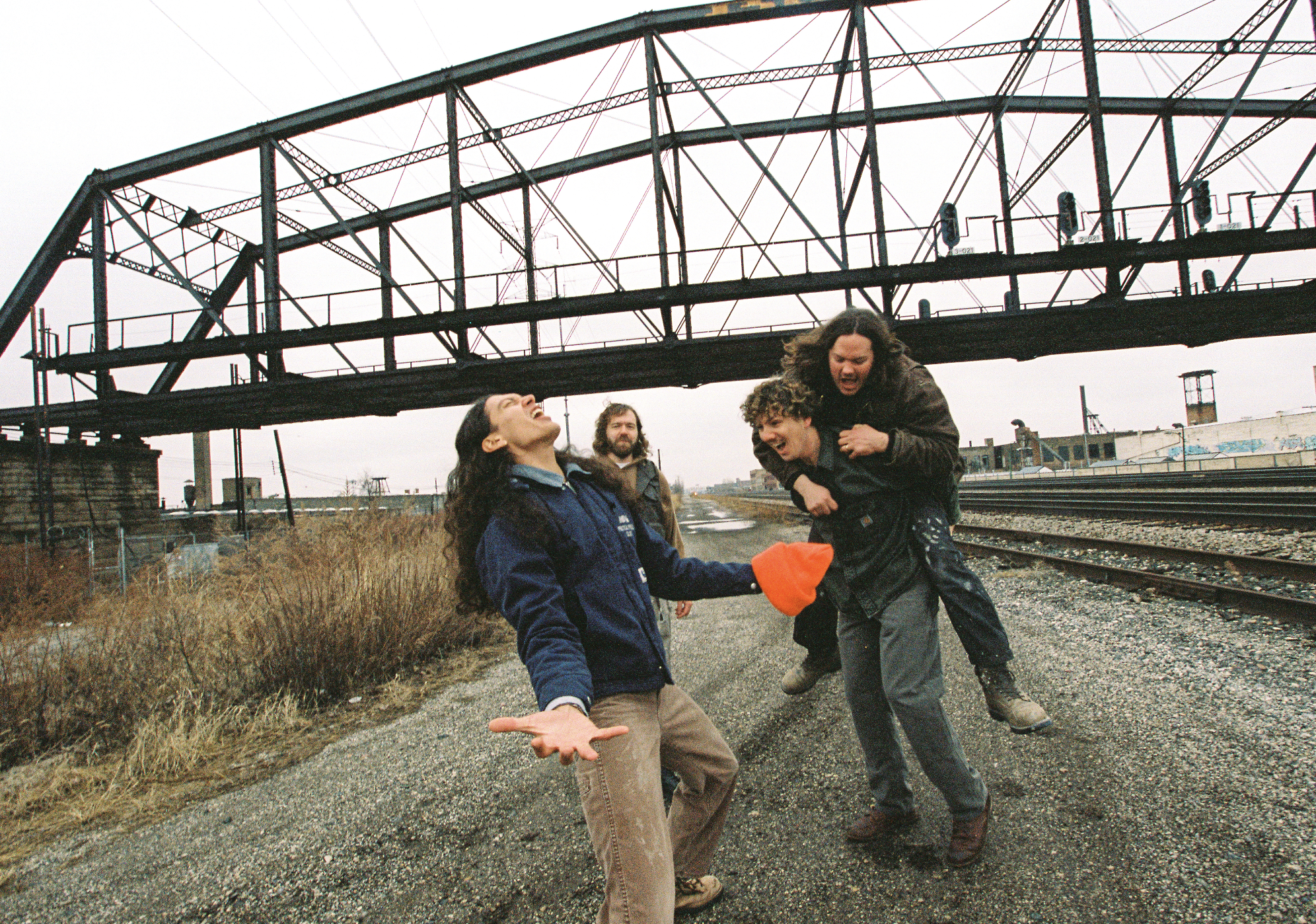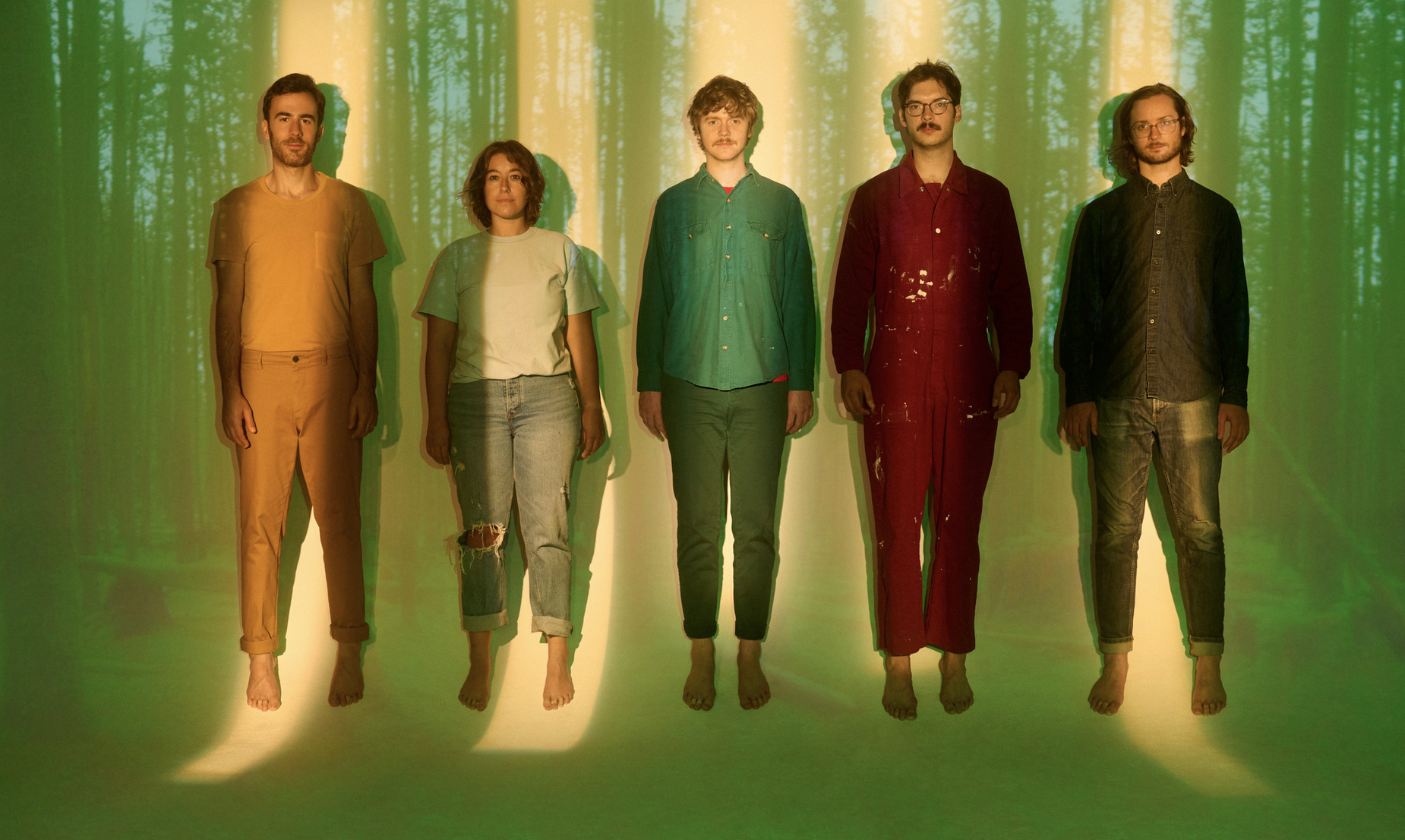Anfang der 2000er Jahre sorgte eine Welle von melancholisch geprägtem Indie-Rock für die musikalische Sozialisierung einer ganzen Generation. Acts wie Death Cab For Cutie, The Decemberists, Nada Surf, The Shins, Bright Eyes oder Broken Social Scene gaben den guten Ton an. Dieser Sound und Spirit lebt im Schaffen der US-Amerikaner von Pinegrove wieder auf. Das neue Album 11:11, das am 28. Januar bei Rough Trade Records erscheint, unterstreicht einmal mehr den Anspruch der Band um Mastermind und Sänger Evan Stephens Hall, in eine Reihe mit diesen großen amerikanischen Bands zu treten.
Dass dieses Album sowohl Aufbruch als auch Anknüpfungspunkt ist, erzählt Hall im Interview, das wir im Dezember 2021 geführt haben. Er berichtet über das Verlassen ihres geliebten Haus-Studios Amperland und die Aufnahmen inmitten der Unsicherheit von 2020. Außerdem erzählt er, wie ihn dieses Jahr in Schrecken versetzt und doch zu Neuem inspiriert hat. Wir sprechen über den raueren Sound, den sie sich dank der Perfektion von Marigold nun leisten, und welche Rolle der Produzent und ehemaliges Death Cab For Cutie Mitglied Chris Walla dabei gespielt hat. Und natürlich darf auch der politische Aspekt, der die Arbeit der Band seit Jahren prägt, nicht fehlen. Hall erzählt von seinem Weg, das eigene Schaffen als politisch anzuerkennen und warum das Jetzt uns nicht erlaubt, unpolitisch zu sein. Im Gespräch erfahren wir außerdem, dass er sich für seine Hörer:innen Geborgenheit und Selbstreflexion wünscht und warum 11:11 die perfekte Zahl für neue Perspektiven ist.
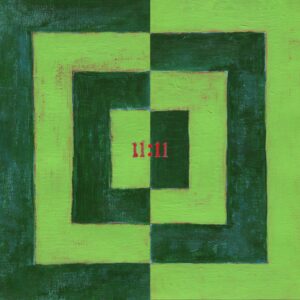 Congratulation on your new record 11:11. It is the first one that you did not record at Amperland. Is this a new beginning?
Congratulation on your new record 11:11. It is the first one that you did not record at Amperland. Is this a new beginning?
Yes. Living in a house is emotional. In retrospect, it helped to provide some closure for me from that chapter. Initially the thought was just to record some songs in this house. It was never more ambitious than that. I think that there is a bit of new energy in 11:11, for whatever reason. A huge reason, certainly too, is that it is on the other side of 2020. We all aged years that year. I maybe am a different person on the end of that – at least a little bit. I think you might hear that in the music if you are familiar with our earlier stuff. But there is a continuity as well.
Yes, you can hear both. In the track to track reflection you wrote that 2020 is the answer to the question why it is so hard to live. Was that one of the core questions for making this record?
Yes, it was. One interesting thing was the way technology inflected 2020. Everybody was literally isolated, but then many of us were absolutely glued to our phones. That was an interesting duality. We all decided to follow the news very closely and that was horrifying. It laid bare of the fact that the ruling class is very comfortable with hundreds of thousands of workers dying, forcing people into unsafe working conditions, just to make a profit. Almost all the billionaires of the United States dramatically increased their wealth, meanwhile workers were dying. That really insisted that we interrogate the system.
Another way the pandemic influenced your work was having remote recording sessions. I also imagine the change here to be quite drastic. You leave Amperland as a home and a recording place, you lose the routines and the freedom that place gave you studio wise to do the exact opposite. How did that influence the album and the writing process?
Yes, it is very different. To me it was pleasantly surprising that necessity incited invention. For instance, Megan Benavente, who plays bass on the album, lives on the West Coast. We had a plan together, which was trial and error and it was not really working at first. We were having a hard time finding how to collaborate on these parts. Eventually, we came to the idea that she would do six takes. One take was all root notes – whole notes. Then there was another take of root notes following the bass drum and then four takes of improvisation throughout. Together we compiled all the takes and moved things around. We were very creative in that stage of the process. I think these are the coolest and uncontestedly the most adventurous bass lines that we ever had. And it shows. The bass is a breakout aspect of this album. The fact that it was done in such an unconventional way is very interesting to me. That is one example of how things changed in a very quick way.

Another thing I noticed is the rougher and more unpolished sound compared to your previous work. I read that you credit Chris Walla for that.
I did want this album to be messier. Part of that was that Marigold was self-recorded in a home studio, much like all of the others. We had been working on a trajectory all the way to Marigold trying to learn and trying to improve. With Marigold sound wise I feel like we really nailed it. Because it was done by ourselves, we wanted it to be as professional as possible. This gave us the latitude for 11:11 to be less fastidious. Every album is responding to the previous album. So, here we are with the freedom to be a bit messier, a bit rougher around the edges, because we know that we can do Marigold and why would we want to it again – we have already done it. The collaboration with Chris was fantastic. We were deeply influenced by Death Cab’s music. Although we love the writing and the musicianship, the production for us has always been a north star for what we were trying to do. It was incredible to work with one of our biggest inspirations. The fact is, that from the get-go he was so approachable and sensitive and serious about our work. Not to say that we were not cracking jokes constantly, but there is a real seriousness about what we were trying to do and what we were trying to say. He helped us say it.
Talking about new beginnings, 11:11 is also the first album that does not have a title directly connected to nature. You have always played with geometrics and forms in your art and now you have chosen the most geometric number that exists. It is also your 11th year as a band.
Oh true, I did not think of that. Yes, to everything that you said. I was attracted to 11:11 because of its ability to accumulate different possible interpretations. On one hand, it could be a row of trees. So, in that sense, it is a self-titled album. It could be row of people standing shoulder to shoulder. It could be cornfields as viewed from the sky. As a kid I also knew it as a special time, where you would make a wish. There is something about that for me. I feel like I needed some sort of optimism in the moment of 2020. The numbers 2020 are very visual as well – not palindromic, but repetitive. There is something about 11:11 that is saying 2020 also. These are some of the thoughts, it is not all of the things. I hope listeners will have fun to think about these things.
The layers of meaning can also be found in the lyrics. 11:11 shares a whole range of emotions from despair to hope. What really stayed for me is the sense of unity in the face of so many catastrophes. Did you go through the whole range of emotions making it –in the sense of a catharsis? And what would you like people to feel after they listened to the album?
Yes, there is something cathartic about it. But it is not just that. I am making something that was not there before, so it is the emotional experience but also the satisfaction of when I have written a song. Those endorphins are comforting. It is a process of self-soothing in a very direct way. And how do I want people to feel after they listened to it? Well, I hope that these songs are in some way affirming to the listener. That they are going to tell the listener to be who they are and to feel what they are feeling and that it is also okay to challenge yourself to be a better version of that. I want to incite introspection. I want people to think about their place in the world as a solidarity body, as a citizen of a town, as a citizen of the world. I am hoping to have a layered experience with that as well. But I also hope that somebody can come to it and take what they want. I hope that my lyrics are abstract enough to allow you to step into the story. And if you do step in to feel that you are treated tenderly there. At the same time, I hope that they are specific enough to be vivid in some way. There is no one way to listen to it and that is by design.
The reflection about one’s place in the world has a political dimension as well. You are working with the Sunrise Movement, you have supported Planned Parenthood and other political causes. Do you think art needs to be political, do you want your art to be political, do you even think it is?
I do think it is political and now I understand that it has always been political. It is a political gesture to say that whatever you are feeling is alright. It is a political gesture to be intentionally inclusive. I used to think about it as humanism. I now understand that there are policy decisions that can be made to support people and that is called socialism. Coming to a space of political awareness was a process. Coming to a space of confidence with my politics to wanting to talk about them in my art and in interviews has been a process as well. It is probably also a mark of where society is. It is not particularly controversial to say that we need a system that prioritizes people over profit and that it is despicable that we do not have that system. I feel angry about it and a lot of people feel angry about it. I feel part of that community that feels angry about and the participation in that community makes me feel less angry. I am really happy to have the chance to get involved with some activism around here to fight for public utilities, to fight for universal health care. To say that these industries who profit of things that we consider human rights are unacceptable. Do I think that art needs to be political? I think that the distinction between political and not political is artificial and becomes less and less viable. People used to say, “Let’s not talk politics around the dinner table”. To a lot of people that sounds pretty naïve now. It is a political decision to not discuss politics just as much as it is to discuss politics. Not discussing it is in support of the status quo, which is not working for the majority of people. It is a distinctly oppressive decision to not consider politics. So where does that leave us? Every gesture is in some way political. It is a signal of the urgency of our time. It is not a good or a bad thing. I do not think it is an ethically qualitative position, it is just a societal natural observation. But with that said, it has increasingly felt like a responsibility. Even if I just care about the people I feel close to. I care about the listeners of this band, this small community that cares about the project Pinegrove. It is important to me that people feel welcomed and safe at our shows. It is not a choice I made exactly, but I do feel increasingly confident and understanding about the political implications of everything that we are doing.
Thank you for the interview!
Pinegrove Tour:
20.05.22 Gleis 22, Münster
22.05.22 Hafenklang, Hamburg
24.05.22 Hole 44, Berlin
25.05.22 Hansa 39, München


